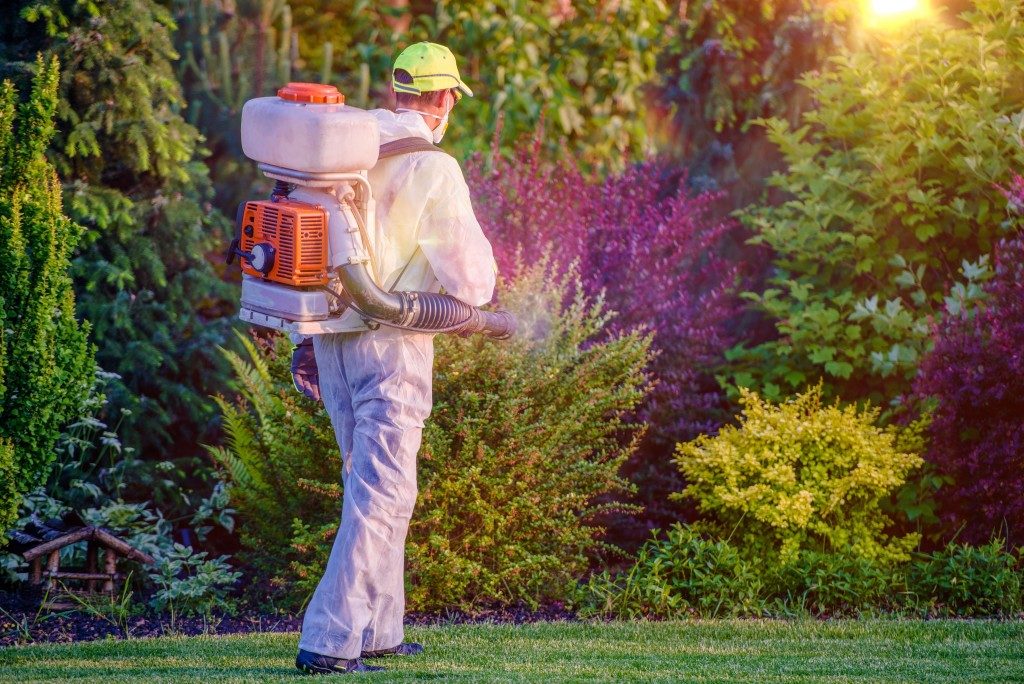What do rabbits, squirrels, raccoons, groundhogs, and deer have in common? As adorable as they may look, these terrestrial creatures can be a nuisance—especially when they invade and eat your ornamental plants, flower beds, fruits, and vegetables in your garden. In this article, we offer some tips on how to keep these critters at bay.
Identify the Critters
When you know which animal is eating what, you can whip up a better action plan to counter these raids. Observe the crime scene. If you notice any woody plants uprooted and herb plants with neat bites, you have a deer problem. Another indication of a deer raiding your garden are their tracks. While the shapes of deer tracks can vary, they’re usually deep, triangular-shaped prints that sometimes have a couple of circles behind them.
You’ll know it was a groundhog if you see any dirt mounds measuring 10 to 12 inches in diameter, leading to burrow entrances. Pellet-like droppings and bites on herb and woody plants means you’ve been invaded by rabbits. Chewed-up plant bulbs and tiny droppings indicate mice.
Still unsure as to which is the culprit? Sprinkle limestone powder all around your garden. Leave it overnight then study the footprints in the morning.
Fence it from the Start
The reason why your garden was raided by critters in the first place was because there was nothing in their way. Surround your garden by using aluminum fences, and make sure they’re at least 8 feet high, to keep out the deer. This height is enough to keep them from jumping over. Ideally, you should set the fences about 10 inches deep into the ground to prevent groundhogs and rabbits from digging under.
Use Repellents
There are a number of animal repellents you can use to protect your garden. If you don’t want to spend money and go the all-natural route, you can use hair or urine as a repellent.
Using either material is safe for the animals, and effective in keeping them out. The pests that raid your garden simply don’t like the smell of human hair and human urine, especially if the urine is from a human male.
It’s recommended that you dilute the urine to lessen the odor and to decrease the risk of over-mineralizing the soil. Note that urine has a lot of nitrogen, and if too much of it gets in your soil, this could kill your plants. Dilute your urine repellent with a ratio of 1 part urine to 10 parts water, then apply it using a spray bottle. Spray your pee repellent around the perimeter of your garden or spray close to your plants to ward off any critters.
As for the hair, you can sprinkle some of it on or around your plants. This can be human, dog or cat hair, but human hair is what’s most disliked by animals. One advantage of using hair is that nothing needs to be done to reap its benefits, which include serving as a natural mulch. Human hair decomposes slowly and contains more nitrogen than manure, along with other essential nutrients plants need to grow. Not only will hair repel these pesky critters, but it will also fertilize your garden safely.
Make the Landscape Inhospitable
Another trick to keep these critters away from your garden is to clean up your landscaped area. You may not know it, but the current layout and composition of your landscape may be encouraging these creatures to pay your garden a visit. Remove any longstanding grasses or weeds; these are favored hiding spots for rabbits, squirrels and raccoons.
Remove piles of firewood or scrap wood sitting close to your garden. If there are any trees, bushes or shrubs that could serve as hiding spots, move them away or cut them down.
Hire a Furry Guard
Wild animals, especially smaller ones, will stay away from any pets that are allowed to guard or stay in your garden. Squirrels, rabbits, mice and even large deer will often run away from or avoid any contact with your dog or cat. Be mindful that most cats and some dog breeds will kill small pests if given the opportunity. Don’t use this measure if you prefer to repel them, and don’t want to risk harming any of these creatures.
Raise Your Plants, Literally
Another measure you can use in combination with the other methods is to use a raised plant box. A plant box that’s raised from the ground by at least 2 feet will keep your flowers, plants, and veggies well away from the reach of rabbits, squirrels, and other terrestrial invaders. These can be DIY or bought from a store.
Cover the Compost
If you make your own compost, store it in an airtight bin or container. The decomposing organic material will attract scavenging critters, and could pleasantly discover the other treats in your garden.
Plant Deterrent Plants

There are other plants that are wonderful additions to food but have the benefit of repelling unwanted visitors to your garden. Garlic is one example, as it’s very useful in the kitchen, while its strong aroma is repulsive to squirrels. Other herbs are sage, which is great for adding flavor to fish and poultry dishes, and lavender, which is a vital component to making aromatic products like scented candles and aromatherapy oils. What do these aromatic herbs have in common? Deer can’t stand their aroma. Grow some of these aromatic plants around your garden to maximize their critter-repelling effects.
Final notes
These measures for keeping away common garden invaders are more effective when used in combination, but the most effective measure is to fence it off. If you choose not to use a fence, you can still ward off critters by using store-bought repellent or DIY ones from hair or urine. A pet dog or cat likewise serves as a good deterrent. Couple any of these measures with planting garlic, sage, lavender or other aromatic plants, and you’ll have an organic, low-maintenance and cost-efficient critter barrier.




